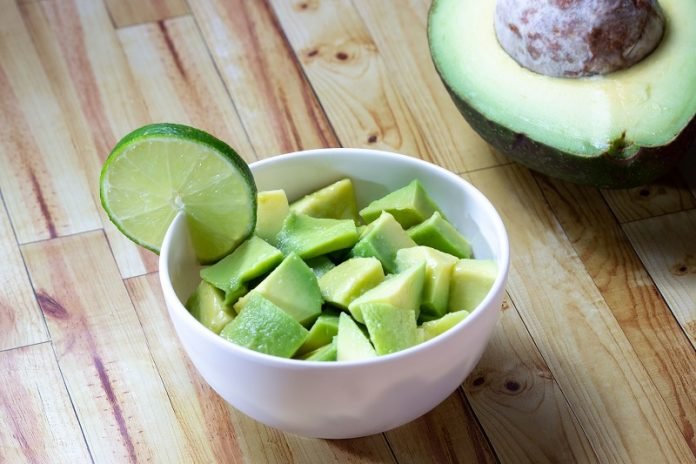
Scientists from Harvard found eating at least one avocado each week may lower the risk of developing heart disease.
They found those who regularly ate avocados had a lower risk for heart disease than people who rarely ate the popular fruit.
Substituting avocado – often served on toast or as the main ingredient in guacamole – for fat-containing foods such as butter, cheese and processed meats also was linked to a lower risk for heart disease.
They also found that eating plant-based unsaturated fats can improve diet quality and is important in preventing cardiovascular disease.
The research is published in the Journal of the American Heart Association and was conducted by Lorena S. Pacheco et al.
Avocados contain dietary fiber and monounsaturated fat, which have been linked to cardiovascular health benefits. Previous research has shown they can help lower total cholesterol.
In the study, the team used dietary questionnaires at the start of the study and then every four years to measure weekly avocado consumption for 68,786 women, ages 30-55, in the Nurses Health Study and 41,701 men, ages 40-75, in the Health Professionals Follow-Up Study.
They tracked the development of coronary heart disease events and strokes over three decades.
The team found people who ate at least two servings of avocados – equal to one cup, or a whole avocado – each week had a 16% lower risk of cardiovascular disease and a 21% lower risk of coronary heart disease compared to those who rarely or never ate avocados.
Replacing fat-containing foods with avocado also lowered cardiovascular disease risk.
Swapping avocado for half a serving each day of margarine, butter, eggs, yogurt, cheese or processed meats, such as bacon, reduced the risk for cardiovascular disease by 16% to 22%.
But swapping avocado for the equivalent amount of olive oil, nuts and other plant oils did not reap heart health benefits. Neither was there any link between avocado consumption and stroke risk.
The findings showed that avocados have possible health benefits.
Monounsaturated fats are the hallmark of the oft-recommended Mediterranean diet, which includes fruits, vegetables, grains, beans, fish and plant-based fats such as olive, canola, sesame and other non-tropical oils.
Recent studies have found one avocado a day keeps diabetes at bay, and why an avocado toast may be the key to a healthy life, which are highly relevant to the current study.
Previous research has found that avocado has lots of health benefits.
In a study from the University of Wollongong and published in the British Journal of Nutrition, researchers found a link between avocado consumption and lower body weight and a smaller waist circumference.
They found that both lower body weight and a lower waist circumference have been positively associated with increased avocado intake.
They also found that greater consumption of avocados was also linked to much lower consumption of discretionary (junk) foods.
Although technically a fruit, nutritionally, avocados are considered a source of fat. Their health-promoting qualities are primarily due to the high levels of unsaturated fats.
These fats help to lower undesirable LDL cholesterol when eaten in place of saturated fat.
Avocados are also low in carbs but high in fiber, so they keep people satiated longer than any other vegetable or fruit.
About half an avocado contains around 160 calories and plenty of folate, vitamin K, vitamin C, potassium and vitamin E, which can help to reduce blood pressure, maintain healthy skin and eyes and boost immunity.
Interestingly, most of the fat in avocados is naturally good fat, with 5 grams of monounsaturated fat per serving (one-third of a medium avocado).
When eaten alongside other foods, avocados act as a nutrient booster and help the body absorb the fat-soluble nutrients found in those foods.
The team says the low levels of avocado consumption could be attributed to the fact that avocado has fallen into a more expensive category of food items, particularly in the fruit and veg market.
Sign up for our newsletter for more information about this topic.
If you care about heart health, please read studies about drug that could help lower obesity, fatty liver risk and improve heart health, and what are the best blood sugar levels to prevent strokes, heart attacks.
For more information about heart health, please see recent studies about drug combo that could halve your risk of heart attack, stroke, and results showing that if you have high blood pressure or heart problems, don’t go to these places.
Copyright © 2022 Knowridge Science Report. All rights reserved.



